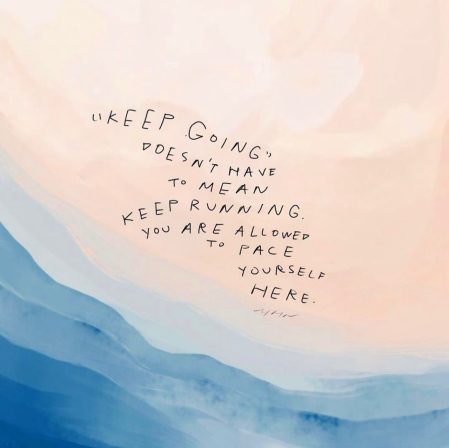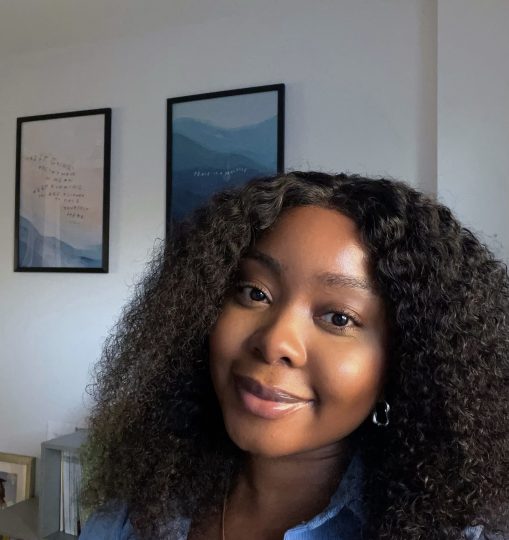Welcome to Alafia Therapy
"Alafia" means inner-peace in Yoruba language
Hey! I'm Sylvia George (she/her) and I'm a qualified counsellor and psychotherapist (BACP). I help individuals in their 20's and 30's with a desire for change and healing to explore their thoughts, feelings, experiences and learn more about themselves.

About Me
Growing up, topics such as therapy and mental health weren't openly discussed due to the cultural stigma around it. However for as long as I can remember, I was intrigued to explore and learn about the connections between our thoughts, emotions and behaviours. This interest and curiosity led me to train as a counsellor and psychotherapist for adults. I'm passionate about supporting individuals in their 20's and 30's to process, discover themselves, heal and thrive. My background also includes working in the mental health sector within NHS and as a Mental Health Coordinator at a university.
My approach is integrative, drawing from person-centered, humanistic, and mindfulness techniques. I believe in the inherent resilience and growth potential within every person which can be achieved through cultivating self-awareness and a deep connection to self. Sometimes it can be difficult to express ourselves or even know where to start. Therapy is a collaborative process where together, we will find the right approach for you to talk about the hard things while prioritising your needs and therapeutic goals.
The client-therapist connection is crucial, built on trust and open communication. I aim to be authentically myself, and it's equally important that you feel comfortable doing the same.
While I work with all adults, it is rewarding counselling young adults within the black community and other marginalised groups to navigate the relationship with themselves, others and environments.
Why is therapy important?
It's essential to recognise that seeking therapy is a sign of strength and self-care. Therapy can have a profound impact on your mental and emotional wellbeing. It provides a safe space where we untangle the barriers that set us back, allowing us to navigate life with more ease and self-assuredness.

Client feedback
"Sylvia has been attentive and really patient with me. Her talking therapy style is really calming. She has helped me rethink the way I view and express certain things and areas of my life"
"Sylvia was very helpful and comforting. I was able to speak freely without feeling like I was being judged. She helped me to realise a lot of things about myself which I needed."
Areas therapy can help with
Anxiety
Body image issues
Career goals
Depression
Family/Cultural Dynamics
Grief/Loss/Breakups
Identity
Life Transitions
Loneliness
Low mood
Race related issues
Relationships
Self-esteem/Confidence
Stress
Student life
Workplace issues
If you can't see your issue or concerns listed above, please reach out to see if I can help.
Fees & sessions
Online or Phone Consultation - 15 minutes: Free
Sessions - 50 minutes: £65
Following on from the consultation, we will meet on a weekly basis. I offer both short and long term sessions.

Get in touch
Feel free to contact me if you have any questions about how counselling works, or to arrange a free consultation. This enables us to discuss the reasons you are thinking of coming to counselling, whether it could be helpful for you and whether I am the right therapist to help.
I aim to get back to all enquiries within 48 hours.
Some frequently asked questions
Many therapists tend to view Counselling as ‘short-term’ work; when someone has a problem that can be looked at and discussed in a clearly-resolvable way. This work often requires undertaking sessions for a certain number of weeks, to explore, discover and clarify a way forward. Therapy is a word used more to describe ‘long-term’ work; discussion that tends towards substantial issues and things that might be life-changing on a deeper level.
Whether counselling or therapy work best as a short- or long-term option depends on the client though, and the difficulties they are facing. In some cases counselling can prove helpful as a continuing, longer-term option, or therapy can help resolve an issue in just a few sessions.
There’s no fixed or ideal length of time for the counselling process; it varies from person to person and will often depend on the depth of the issues they are facing. While I work on an open-ended basis with clients, you are able to decide how long therapy will last, and in return my aim is to make sure therapy continues for as long as it is of benefit to you. I find it is helpful for us to have periodic review sessions to see where we are at.
This depends on what your needs are. Some people find that after only a very few sessions they have some clarity and focus and are ready to end the therapy. Other people value the ongoing support and relationship with me and will continue to come for weeks, months, or even years. There is no 'one-size-fits-all' when it comes to therapy.
My aim is to offer you a first appointment, known as an initial session within 1-2 weeks.
Confidentiality is one of the main ways in which therapy differs from many other forms of helping - for example, talking to friends or family can rarely offer the same degree of confidentiality as talking to a counsellor. Because of this confidentiality, you will find that - as you get used to coming for therapy - you are freer to talk about whatever you wish to.
No therapist can offer 100% confidentiality: there are some situations where the law requires disclosure of risk (e.g. certain child protection issues) and in common with most other therapists, there are some situations where I may not be able to keep total confidentiality. In particular, if someone tells me that they are thinking of harming themselves in a way that I believe puts them at serious risk, or if someone tells me that they are doing something that could put others at risk, I may not be able to keep such information confidential. However, breaking confidentiality is rare, and only happens after talking to the person concerned.
When you come for counselling it's important that you feel free to talk about whatever is important to you. Sometimes, you may not be clear what those issues are. Having a friend or family member with you is not usually helpful because they may have their own agenda for you. Even if this is just that they want to be supportive, or want you to 'get better', this agenda can prevent us opening issues up. When you come for therapy, you may need to explore thoughts or behaviours about which you feel ashamed or embarrassed and you may censor yourself so as not to hurt someone, or you may find that what they want you to talk about is not really what you need to discuss.
Sometimes, family/friends can even be part of an underlying issue which needs to be aired and discussed. Usually, people who ask this question are nervous about coming for a session alone, or they are anxious for the person who is thinking about arranging sessions. This anxiety is quite normal, and you will not be forced to talk about anything you feel uncomfortable about - but you do need to be able to talk about whatever is important. For this reason, I do not see clients accompanied by friends or family
© Sylvia George
powered by WebHealer



